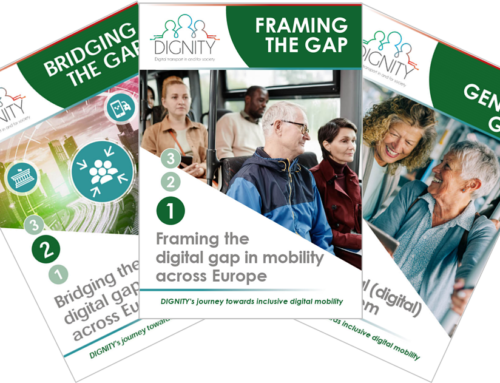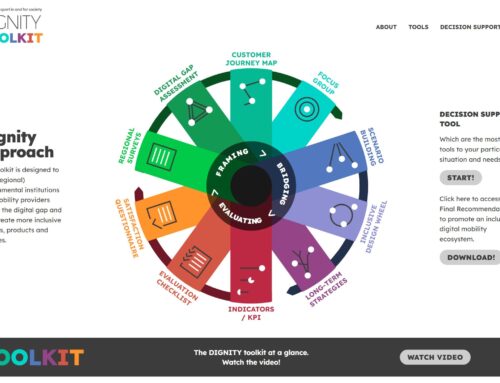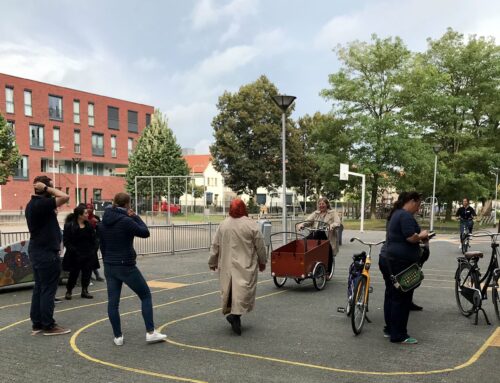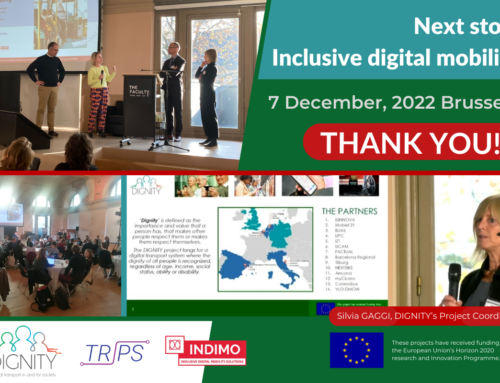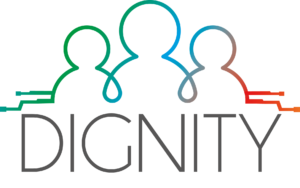Digitalisation has made the world more interconnected. People, businesses, regions, and countries can communicate and exchange information faster than ever before, and digitalisation in transport is no exception. But not everyone is benefitting from these digital developments. Some people have limited digital skills or access to digital infrastructure – and risk being excluded from some products or services.
The DIGNITY self-assessment framework helps local authorities to gain a clear picture of the digital gap in mobility in their region, helping them to prioritise the vulnerable-to-exclusion groups that need the most urgent attention.
Self-assessments are already being conducted in the DIGNITY pilot regions. This will provide a baseline set of Micro-, Meso- and Macro-level information for each – meaning information about the population (micro), the digital products and services available (meso) and the governance structures and regulations in place (macro).
The results of these trials will be used to fine-tune the DIGNITY approach and improve the framework before making it available to all cities and regions that want to work towards inclusive and accessible city concepts.
The self-assessment framework helps authorities to:
- Gain an understanding of the current situation in a region regarding digitalisation, mobility, and the interaction between the two
- Gain knowledge on the ability of citizens to use digital products, identifying any vulnerable-to-exclusion groups that might require additional attention
- Gain an overview of the current market supply of digital mobility products and services, with a specific focus on the needs of vulnerable-to-exclusion groups
- Assess policy-readiness to address and act on the digital gap in mobility
- Help cities in their decision-making process by indicating priority policy areas to focus on
Public authorities are the key target audience of this self-assessment framework, and carrying out self-assessments on a regular basis will allow them to see how the digital gap in mobility is changing. The end goal is to have an innovative decision support tool that helps local and regional decision-makers to formulate digitally inclusive policies and strategies, and digital providers to design more inclusive products and services.
You can read the full document, DIGNITY Guidelines for Digital Gap Self-Assessment, by clicking here.


